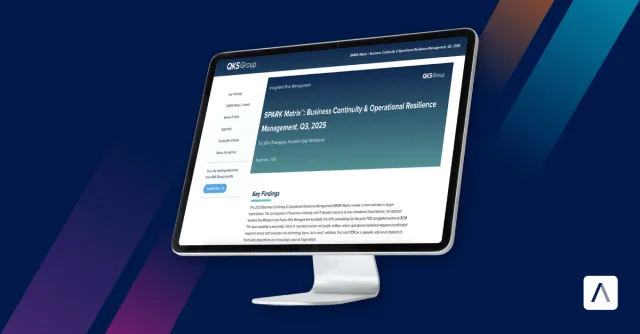The Role of Business Continuity Software in Reputation Management
Overview
Many scenarios can lead to reputational damage —from cyberattacks to supply chain disruption. Surprisingly, a lot of companies are still inadequately protected against the consequences of a reputational crisis.
Unlike many other business risks or threats, reputational damage has the most lasting effect on a business and is one of the toughest to mitigate.
Stakeholders keep a close eye on how a company responds to difficult situations. Any action during a crisis can ultimately affect the company’s reputation. According to a survey, companies are most prepared to manage reputation risk drivers in areas where they have direct control, such as regulatory compliance and employee management. However, 47% of businesses are less prepared when it comes to handling risks related to supply chain management, and 41% mentioned hazards or other natural catastrophes.
This Guide Will
...explain the four main advantages of implementing business continuity software at your organization, which include the following benefits:
-
Business continuity software helps adjust to organizational changes.
-
Business continuity software streamlines planning and testing.
-
The software supports the development of business continuity metrics.
-
BC software drives program commitment, innovation, and advancement.


